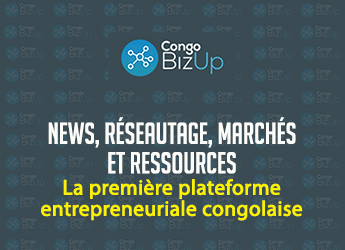Consultant
![]()
--------------------------------------------------------
CONSULTANT
--------------------------------------------------------
No Offre: HR/EZO/001/FY20
World Vision is an international, Christian, relief, development and advocacy organization working to create lasting change in the lives of children, families and communities living in poverty. World Vision serves all people regardless of religion, race, ethnicity or gender. As a child-focused organization, WV’s work focuses on children, ensuring they are protected and their basic needs are met. Founded in 1950, World Vision International has programmes in 106 countries spread over six continents. For more than 20 years, World Vision has been active in the Democratic Republic of Congo. Its intervention zones cover the provinces of Haut Katanga, Lualaba, Tanganyika, Haut Lomami, Kinshasa, Kongo Central, Kwango, South and North Kivu, South, Kasaï Occidental and Nord Oubangui and Maidombe.
CONSULTANCY SERVICES FOR THE IMPLEMENTATION OF A MINERAL SUPPLY CHAINS MAPPING AND LABOUR MARKET ASSESSMENT IN THE DEMOCRATIC REPUBLIC OF CONGO (DRC)
Contracting Organization: World Vision International - DRC
Partner organizations: War Child UK and Fifty Eight
Country: Democratic Republic of Congo (DRC)
Project: Effective Approaches in Ending Worst Forms of Child Labour (EAPEC)
Position type: Consultancy
Study/assessment topic: Mineral Supply Chains Mapping and Labour Market Assessment
Study Sites: Masisi territoire (North Kivu) and Nzibira territoire (South Kivu), DRC
Duration: 2 – 3 months (flexible, depending on submitted timeframe)
Application deadline: October 28, 2019
TERMS OF REFERENCE (ToR)
1. SPECIFIC OBJECTIVES
Identify ways and means to facilitate girls, boys and their caregivers to have access to safe, age, gender and disability appropriate economic alternatives (both employment and self-employment) for instance through diversification of income sources, increasing productivity/profit margins, getting a better price, adding value, etc.
Identify challenges to companies trying to reduce and/or prevent WFCL at different levels of value chain i.e. purchasing practices, operational practices, corporate social norms, etc.
2. PROGRAMME SUMMARY
This programme will enable boys and girls to enjoy their rights to be protected from the worst forms of child labour in the Central African Republic (CAR), the Democratic Republic of the Congo (DRC) and Ethiopia. It will specifically focus on those forcibly recruited into armed conflict and artisanal mining used in prostitution, forced labour or hazardous work in fragile contexts.
The EAPEC programme will test and measure innovative approaches to understand what works in reducing the Worst Forms of Child Labour (WFCL), in fragile contexts. It is the first of its kind to bring together a consortium of international NGOs and local partners, private sector, a well renowned University, a corporate foundation and media development agency to tackle the supply and demand issues which result in child labour in fragile states. Studies to date on child labour have not focused explicitly on the Worst Forms of Child Labour. The programme will bring new evidence to the sector while testing the assumptions in the theory of change and the necessary combination of activities to effect change.
The programme is based on existing evidence of what works to address the WFCL including specific project models on challenging social norms related to child protection through family and faith leader dialogues, local level advocacy with young people and their communities, Village Savings and Loans groups, hotlines for child protection reporting and bringing the private sector together to share best practices to improve their supply chain due diligence.
EAPEC will address particular challenges of programming in fragile states (e.g. conflict, disease outbreaks) through an adaptive programme focused on testing interventions on a small scale before analyzing their effectiveness, adapting as necessary and scaling them up and/or replicating the other contexts.
The holistic, multifaceted intervention will focus on four components:
1. Increasing children’s agency- empowering children and their communities with awareness of their rights, supporting youth-led advocacy, drama and child parliaments to challenge social norms that condone or perpetuate child labour. Child protection mechanisms will be strengthened at the local level and safe spaces made available for psychosocial support for children.
2. Facilitating access to appropriate alternatives to WFCL – supporting children to stay in or return to school/alternative education, enabling youth and their caregivers to access skills training, start-up capital and savings groups as viable pathways to prevent WFCL. Young people and their families will be connected with safe employment opportunities in the private sector.
3. Strengthening the legal and policy environment- Coalitions of NGOs, law enforcement, government agencies, and other targeted stakeholders will be supported to strengthen the legal environment at national and local levels and to deliver components of National Action Plans on WFCL. Child protection reporting systems will be strengthened and the capacity of local authorities to enforce built.
4. Improving supply chain due diligence and duty of care from the bottom up. Specific formal & informal supply chains will be mapped in each country from bottom up to identify the prevalence of WFCL, positive and harmful corporate norms. A Private Sector Strategic Advisory Panel will be formed to channel private sector perspectives, experience, insights, knowledge, & networks to the programme.
Innovation, poverty reduction, sustainability, gender and disability are integrated into the design given they affect children’s vulnerability to the WFCL- specifically in fragile contexts. This programme builds on local level interventions by traditional actors, through introducing a deeper understanding of markets and value chains to better target potential alternative livelihoods. Partnership with the private sector will enable a greater understanding of both harmful corporate social norms and best practice to reduce the WFCL in supply chains. These local-national-global linkages are underpinned by robust research and evidence building in fragile states.
3. CONSULTANTS’ QUALIFICATIONS
A reputed local or international organization/individual with proven presence in DRC and experience in conducting field assessments. The service provider must have undertaken similar works, ideally in DRC in the last four years. Some of the key requirements are:
- At least 5-8 years of experience in undertaking livelihoods and/or labour market assessments and mineral supply chains mapping in conflict affected context;
- Proven experience of conducting assessment in conflict settings on issues related to the WFCL in particular children in mining and children associated with armed forces and armed groups (CAAFAGs)
- Presence of assessment team in country of assignment or being able to operate in DRC by the agreed starting date.
- Have data collection capacity in assigned areas of assessment a good understanding of the country, its context and the impact this may have on the working environment.
- Experience of coordinating with diverse set of stakeholders, including government institutes, donor’s representatives, local and international NGOs.
- Have excellent team leading skills, with the ability to work with a diverse team both face to face and remotely
- Hold a minimum educational qualification equivalent to a Master’s Degree, in a relevant qualification and good numerical/statistical knowledge.
- Demonstrate proven experience in conducting participatory qualitative and quantitative assessments with superior analytical skills.
- Have excellent written and spoken French and English, knowledge of spoken Mashi, Kiswahili, Hunde and Kinyarwanda languages is preferred and will be an added advantage.
- Have excellent report writing skills.
- Have a good knowledge of MS Windows environment and statistical analysis packages.
4. DOCUMENTS TO BE SUBMITTED BY THE CONSULTANT
The consultant should submit a proposal comprising of the following;
- A two-page covering letter including a capability statement detailing the consultant’s ability to deliver a quality evaluation report within the given timeframe.
- A technical proposal, which indicates how the consultant is going to undertake the activities highlighted in the TOR, with initial indication of the timeframe.
- A detailed financial budget.
- CVs of the assessment teams member and other key staff involved in the assessment
- A brief outline of at least 3 previous engagements of a similar nature showing how the assignments were similar to this one and what the outcomes were. Include one reference for each assignment and a sample of previous assessment reports undertaken by the service provider.
All documents should be submitted to the Director of Human Resources no later than 28th October 2019 at 4:00 pm, with the subject " Call for Expression of interest: Consultancy services for the implementation of a Mineral supply chains mapping and Labour Market Assessment in the Democratic Republic of Congo (DRC)" at the email address: recruit_wvdrc@wvi.org
LA DIRECTION.





















